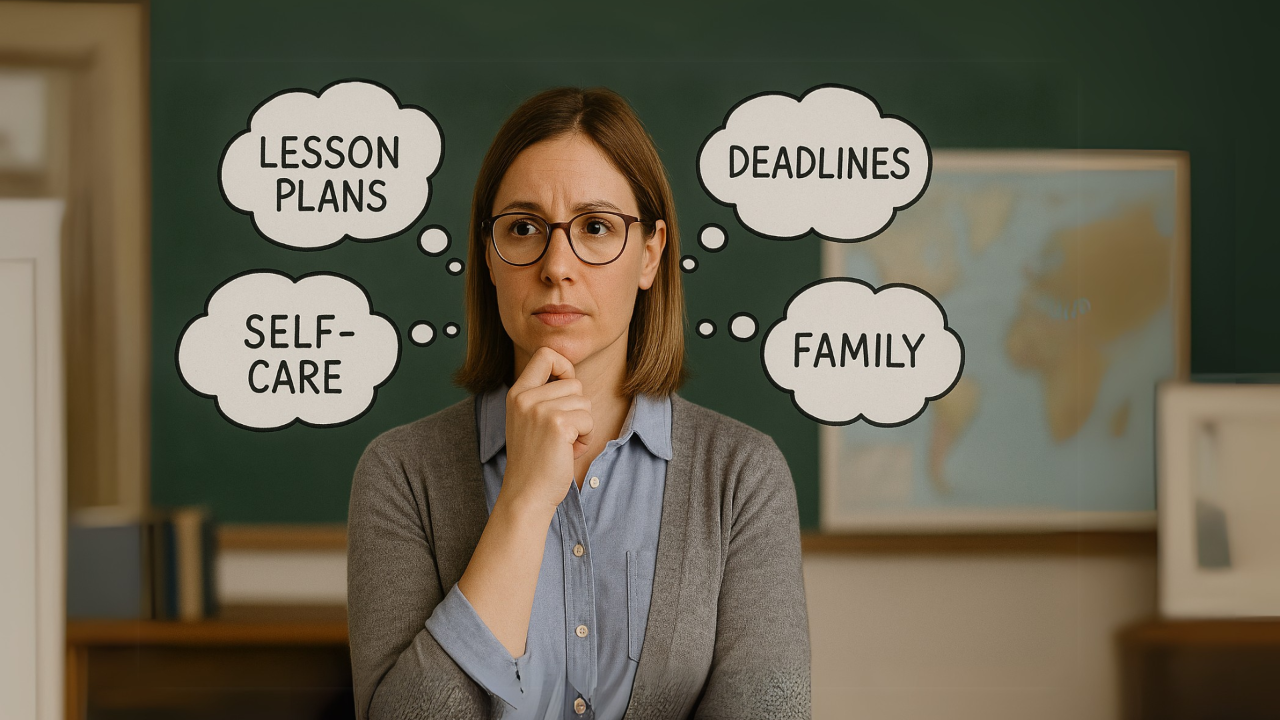Has Your Teaching Role Become Your Identity?
May 02, 2025
"I didn’t realise I was burnt out until I was burnt out.” This poignant reflection from an overburdened teacher resonates deeply within the educational community. Slowly, over time, they describe becoming a mere shell of their former self, speaking in monotones, lacking energy, and most tragically, losing their spark. The fundamental question arose: "What’s the point in all this?"
In the relentless pursuit to keep up, they found themselves utterly lost, ensnared in the spirals of burnout. Admitting, "Maybe I’m not perfect and my resources have been pushed beyond what I’ve got available," exemplifies a raw level of vulnerability that many teachers shy away from acknowledging.
Sustaining Enthusiasm in Teaching
How can we make our enthusiasm for the role sustainable? Many teachers and leaders find their entire lives revolving around their identity as educators, constantly questioning, "What can or can't I do as a teacher?" The dilemma extends into personal spaces—whether it's appropriate for students to see them in casual clothing at the supermarket or out and about in town.
Too often, teachers dampen their personalities to fit the perceived mold of their role, rather than expressing who they are at their best. It is crucial for educators to remember who they are beyond the confines of their classrooms and what truly matters to them as individuals and staff members.
If I suggest to you that firstly you are YOU, then a child, parent, sibling, friend. Adter that, you are a teacher or leader.
The Balance of Personal and Professional Life
The teaching role can easily eclipse the individual, stifling creativity and energy, thereby preventing the best version of oneself from emerging. Teachers frequently face overwhelming demands—like marking extra papers over the weekend under the pressure of looming deadlines—and grapple with the capacity to say no. Would others in the team also say no? This is especially challenging when hoping for promotions or opportunities for advancement.
Ultimately, reminding oneself that teaching is not the number one priority, but that personal well-being and family are, can help in learning to gently say no and articulate the reason behind it.
Leadership and Support Systems
For those in leadership positions, being approachable is vital. Understanding when staff members are overwhelmed and asking if they need support fosters a culture of mutual give and take.
Equally important is identifying what ignites your passion as a person, not just as a teacher or leader. This reflection aligns with the need to feel psychologically safe in one's role. Can teachers genuinely turn up as themselves, or do they mask their stress and anxiety, contributing further to burnout? Leaders are also prone to do this.
Senior leaders must equally check in with themselves to ensure the environment is safe and supportive not just for them, but for their staff, pupils, and families too.
Rediscovering Personal Values
To avoid burnout, it’s helpful to engage in values work—identifying traits or characteristics integral to one's identity. Whether it’s creativity, integrity, or kindness, understanding what truly defines you can help you live authentically both at home and at school.
Living in accordance with personal values can lead to flourishing, though there will be necessary negotiations and prioritisations as part of school life. Recognising that identifying neither as an 'outstanding teacher' nor a 'failure' is not only possible but sustainable, helps recalibrate one's identity healthily.
Rediscovering who you are beyond the staff room can help balance the scales of identity within and beyond the teaching role, fostering a healthier relationship with teaching and personal life.
